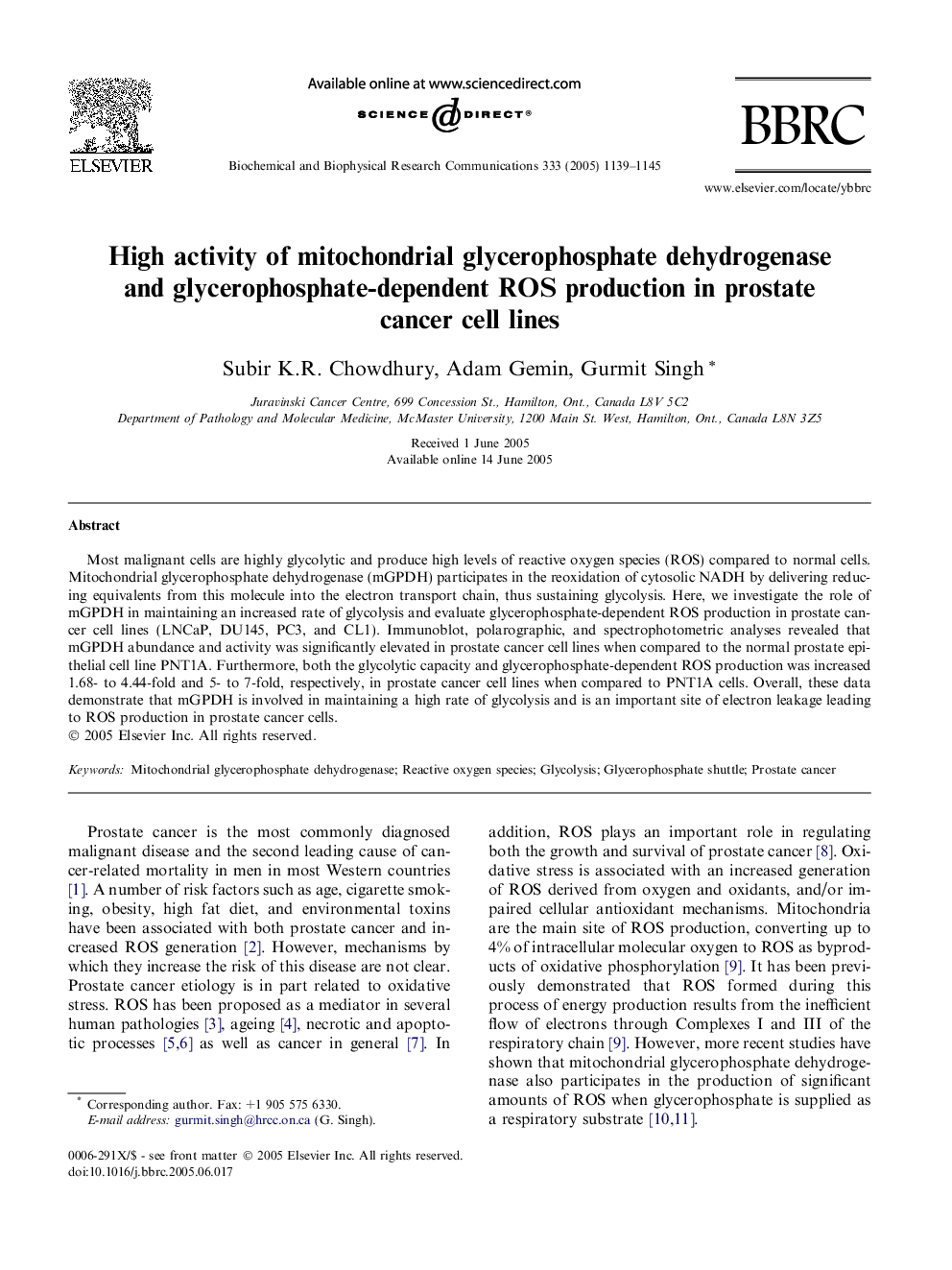| Article ID | Journal | Published Year | Pages | File Type |
|---|---|---|---|---|
| 10768556 | Biochemical and Biophysical Research Communications | 2005 | 7 Pages |
Abstract
Most malignant cells are highly glycolytic and produce high levels of reactive oxygen species (ROS) compared to normal cells. Mitochondrial glycerophosphate dehydrogenase (mGPDH) participates in the reoxidation of cytosolic NADH by delivering reducing equivalents from this molecule into the electron transport chain, thus sustaining glycolysis. Here, we investigate the role of mGPDH in maintaining an increased rate of glycolysis and evaluate glycerophosphate-dependent ROS production in prostate cancer cell lines (LNCaP, DU145, PC3, and CL1). Immunoblot, polarographic, and spectrophotometric analyses revealed that mGPDH abundance and activity was significantly elevated in prostate cancer cell lines when compared to the normal prostate epithelial cell line PNT1A. Furthermore, both the glycolytic capacity and glycerophosphate-dependent ROS production was increased 1.68- to 4.44-fold and 5- to 7-fold, respectively, in prostate cancer cell lines when compared to PNT1A cells. Overall, these data demonstrate that mGPDH is involved in maintaining a high rate of glycolysis and is an important site of electron leakage leading to ROS production in prostate cancer cells.
Keywords
Related Topics
Life Sciences
Biochemistry, Genetics and Molecular Biology
Biochemistry
Authors
Subir K.R. Chowdhury, Adam Gemin, Gurmit Singh,
